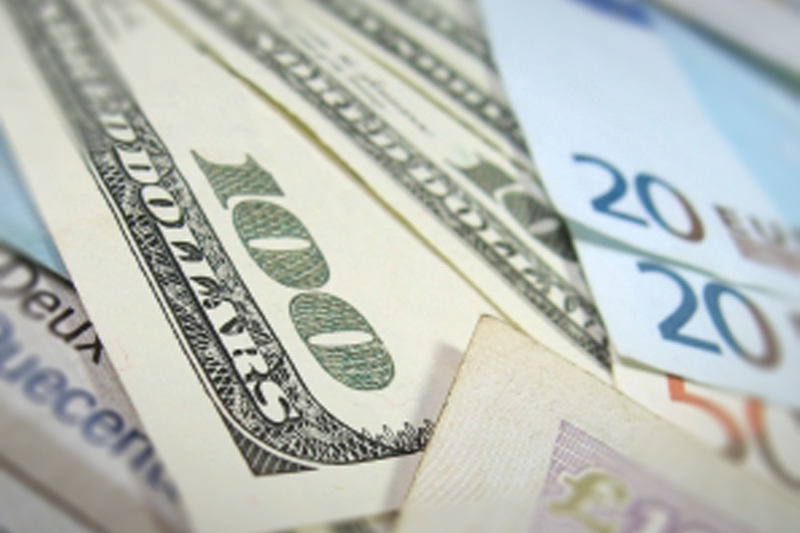Investing.com -- While the U.S. dollar extended its recent slide against the euro on Monday, comments from Federal Reserve vice chair Stanley Fischer and leaders in Europe discussing the Greek financial crisis had little impact on currency prices in afternoon trading.
EUR/USD reached 1.909 on Monday, its highest level in two weeks, before falling back slightly to 1.094 in afternoon trading. When EUR/USD fell to 1.0987 on Mar. 5, it marked the first time the pair slipped below 1.10 in 12 years, as expectations of an expected interest rate hike from the Federal Reserve coincided with the start of a €60 billion a month bond buying program.
The pair continued its steep depreciation to 1.05 levels on Mar. 13, before reversing in the middle of last week following relatively dovish comments by Fed chair Janet Yellen on slower than expected inflation and GDP growth. The U.S. Dollar Index, which measures the strength of the greenback versus a basket of six other major currencies, fell more than 0.75% on Monday to 97.24.
Striking a well-balanced tone in a speech to the Economic Club of New York on Monday afternoon, Fischer indicated that the Fed will begin raising interest rates when the benefits of lift-off outweigh the costs. Fischer reiterated that the Fed will likely raise interest rates at some point this year.
In addition, Fischer added that a "smooth plan upward will certainly not be realized," as the Fed has no plans for regular rate hikes. The stance differs from one the Fed employed on two occasions in 2004 and 2007 when it employed a model for steady rate raises on a long-term basis.
Although the Fed is hesitant to discuss the strength of the dollar relative to the euro and other currencies, Fischer indicated that it is keeping a closing eye on exchange rates to guard against potential cases for manipulation of the foreign exchange markets.
"What is not acceptable is manipulating exchange rates, trying to use them as the sole means of generating growth," Fischer said. "That has not happened as far as we can tell in our partner countries."
Elsewhere, Greece prime minister Alexis Tsipras and Germany chancellor Angela Merkel put on a public display of goodwill during Tsipras' first visit to Berlin since he was elected earlier this year. Still, there were no indications on whether any progress had been made in negotiations on extending the euro zone's bailout package to Greece during talks on Monday.
Meanwhile, Mario Draghi expressed frustration with Athens in testimony before the European Parliament when a member from Portugal asked the head of the European Central Bank to respond to accusations that it is blackmailing Greece into accepting strict austerity measures.
"It's a bit of reach when you look at the exposure we have with Greece. ECB has an exposure of €104 billion to Greece, this is equal to 65% of Greek GDP," Draghi responded. "It's the highest exposure in the euro zone, so what sort of blackmail is this? It's up to you judge."
Yields on U.S. 10-Year Treasuries remained significantly below 2% at 1.909, while yields on 10-Year German bunds increased 0.04 to 0.22.
